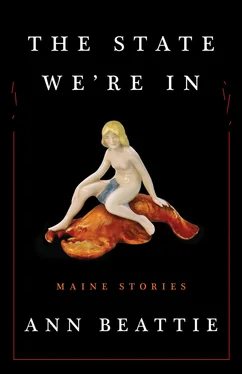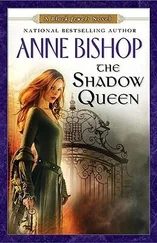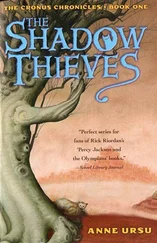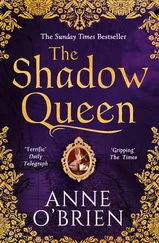You weren’t supposed to touch birds, because they wouldn’t be allowed back in the nest, right? If you got your human smell on them. Or was that an old wives’ tale? Were there still old wives who told tales, or did everyone know everything now, including how to remove red wine stains, how to make your tablecloth soft, how to keep salt from getting moist in the container? Oh, it was a world of rice now, very little ingested because quinoa was so popular, that and tabouli and spelt, though rice grains were still put in saltshakers. Rice was still thrown at weddings. Certain weddings.
Poor little dirty sad frightened bird! Poor distraught elders! They all feared the worst scenario: death by drowning; death by starvation; an ugly end with no one but them as witnesses, and they could do nothing except send up a storm of sound and hope either the gods, or the humans who acted like gods, would do the right thing, that one of them would be the savior. She was obviously that, staring nervously for only a few seconds before dropping everything, checking her impulse to plunge in her hand, running inside for the oven mitts, guaranteed to be safe for food cooked up to 450 degrees.
Into the house she ran, out of the house she ran, hands in mitts. But she didn’t want to crush it. It was so small. So sodden. The skin of its tiny head looked like the crow’s-feet fanning out from the corners of her eyes.
The birds were making a terrible sound, two on the ground as if facing off with her, yet much too far away. Two others sitting high up in the tree were making the loudest noise. She was capable of reaching in, even though the mitts made the use of her hands awkward, to say the least, and lifting out the little thing and putting it on the walkway, where she hoped all traces of Roundup were gone from the spraying done by the lawn service, to keep weeds from sprouting in the sand between bricks… maybe put it on the grass. Though it looked like it would need all the traction it could get. What was the scenario? She could retreat to the house or go to the car and turn on the AC and watch in her rearview mirror to see Mother Bird swoop down and — however she did it — enfold Baby Bird somehow, and lift it again to the nest, which she imagined she saw — either that or some dead leaves — midtree. Well, it was nature. It would work out. Of course it would. She kept focusing on the near future because the little bird was cupped in her oven mitts now. When suddenly she remembered something she had forgotten for… well, for most of her life. It was a poem that began “Good-bye, little fledgling, fly away.” Her grandmother, who’d been such a good baker, had placed in the center of her famous apple pies made with three kinds of apples a little black bird with an open beak, a pie bird, to release steam. A simplified version of a bird, a little objet, the clever baker’s secret to a perfect pie.
It was standing there. It was either shivering or trying to move its wet wings. It could have died in the recycling. What if she’d hurried on, thought the happy birds were just voicing their happy songs? Both birds had now flown from the lawn back into the tree. One kept flying up and landing exactly where it had started from. Surely it had a plan? The little bird was slightly lopsided. It made a motion resembling a hop. It opened its beak and made a slightly louder sound than it had made in the blue plastic recycling container, which seemed to alarm it and make it tilt farther sideways. She was overstaying her welcome. Car plan: she scooped up her purse and bag, still wearing the cumbersome silver oven mitts. That was the way she looked as she emerged from under the bower of wisteria, making it a point not to torture herself by looking back, and greeted the man in the open-doored mail truck, only slightly surprised to have come upon her looking the way she did: rather frantic, breathing heavily, her hands like lobster claws immobilized by thick rubber bands.
Regardless of her grandmother’s lessons and always gently delivered advice, she’d never made a pie in her life.
AUNT SOPHIE RENALDO BROWN
Years ago, I saw two people at a summer party who arrived in grand style and departed to everyone’s protestations that they shouldn’t drive. The driver of the little MG was called Walrus, which I thought was the funniest name I’d ever heard, and his ladyfriend was called Star. She’d been an extra in a few movies but never managed to have a career in Hollywood. Someone at the party said she was a secretary at a recording studio, and someone else said she’d eloped with a much older man and never had the marriage annulled, and that he looked out for her. These people had hardly turned their backs when the gossip began. Someone said to me that it was like everyone lying and conjecturing at Gatsby’s parties, but I had not at that point read the book.
Aunt Sophie Renaldo Brown was wearing red sling-back high heels and khaki shorts (hardly Gatsby attire, as I’d later learn) and a tight lavender blouse, under which she wore a push-up bra and, inside the bra, carefully placed, two metal wire champagne cork baskets to suggest hugely protruding nipples. As Sophie Renaldo, she’d been a teetotaler, but after getting her life together, divorcing Roy Renaldo, and eventually a subsequent marriage that lasted six months but gave her the name Brown, matriculating at NYU, she’d developed a taste for icy cold rosé. You know how it is: you get a cat; the cat needs toys; you get a bell so the cat won’t kill birds and also a cushion so the cat can rest comfortably somewhere other than on the sofa. A cat becomes a whole big deal. She did have such a cat, named Methuselah by her first ex-husband, who’d believed that the cat was eight or nine years old when they got it from the shelter (this is what they’d been told), and then it had lived another nineteen years and was still going strong except for a recent bout of hypergrooming in the tail area.
Roy was happy to leave the animal behind with Sophie when he moved to York, Maine, to work at an accounting firm with an old Navy friend. He was not so happy to have to continue to pay his soon-to-be-ex-wife’s tuition, but the following year she graduated with a degree in sociology. She was currently a hostess at a busy, successful Upper West Side restaurant. She got up early in the morning to walk the cat on a leash (people stared), to buy a small bottle of freshly squeezed orange juice, then return home to sip it as she took her daily vitamins and wrote lengthy passages in her diary. Bryce, the new waiter, often stopped by to round her up for the three-block walk to Café Anywhere. He was the one who’d introduced her to rosé.
My father called her a lush and would have nothing to do with her once she was divorced from his brother — when she became more of an exhibitionist than ever. At her first wedding, she’d constantly raised her wedding gown to show the garter with its thinly braided white ribbons whose little satin pigtail points were dusted with blue sparkles and tiny, dangling heart-shaped crystals. She told me they were edible! She had quite a sense of humor. I was seven years old, and absolutely mesmerized. Who could believe Uncle Roy would find such a prize? His other girlfriends had been heavier, and none had had such luxurious hair, and certainly none had giggled or offered to take me to Central Park. One had asthma.
I was seventeen when Roy and Sophie separated and eighteen when they divorced. They’d never had children, but I always knew she wished I was hers. Sometimes when I was growing up, she’d point to little boys on the street and say she was glad she wasn’t stuck with one of them. I usually agreed, because they always seemed wound up and they tended to breathe through their mouths and to have dirt or food on their faces.
Читать дальше












